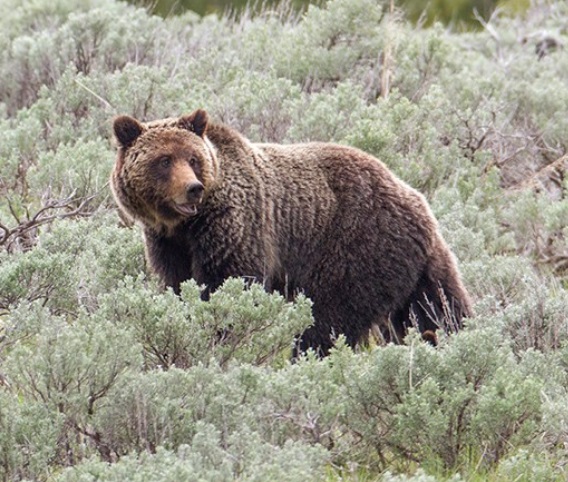 The Rocky Mountain Elk Foundation and Sportsmen’s Alliance Foundation disagree with a judge’s decision to vacate the delisting of the Greater Yellowstone grizzly population by the U.S. Fish and Wildlife Service. The ruling places the population back on the endangered species list.
The Rocky Mountain Elk Foundation and Sportsmen’s Alliance Foundation disagree with a judge’s decision to vacate the delisting of the Greater Yellowstone grizzly population by the U.S. Fish and Wildlife Service. The ruling places the population back on the endangered species list.“We are highly disappointed with this decision,” said Kyle Weaver, RMEF president and CEO. “Once again we see that extreme environmental groups continue to clog up the delisting process at a time when we should be celebrating the recovery of grizzlies in the region. Scientists gathered data and population numbers that show grizzlies in the region surpassed all recovery criteria and are recovered. This ruling bolsters the case for Congress to update the Endangered Species Act.”
This follows a 2007 decision by the Department of Interior (DOI) to delist Yellowstone grizzlies, a decision that was also litigated by environmental groups and overturned by the federal courts.
“Despite this ruling, the basic facts remain the same: grizzly bears in the Yellowstone area have recovered, and no longer meet the definition of threatened or endangered under the ESA and should be rightfully returned to state management,” said Evan Heusinkveld, Sportsmen’s Alliance Foundation president and CEO. “This ruling is just another example of why we need comprehensive reforms to the way we manage ESA-listed species in this country. We are evaluating all of our legal options to appeal this ruling.”
The DOI announced the removal of Yellowstone area grizzlies, numbering more than 700, from the endangered species list in 2017 based on sound science and millions of hunter dollars spent on researching and studying the bears. Idaho and Wyoming later announced intentions to hold conservative management hunts in the fall of 2018. Those hunts will not take place.
Environmental groups claimed the grizzly population in the Yellowstone region would be decimated if delisted and placed under state management. They made the same claims for the Northern Rocky Mountain wolf population which is 200 to 400 percent above minimum recovery goals, depending on the state.
“State-based management of wildlife is a key facet of the North American Wildlife Conservation Model. That is why the most healthy and robust wildlife populations in the world are found in North America. Grizzlies, like elk, wolves, deer and all other wildlife, should be managed by the states for their overall betterment. This ruling thoroughly frustrates that process,” added Weaver.
